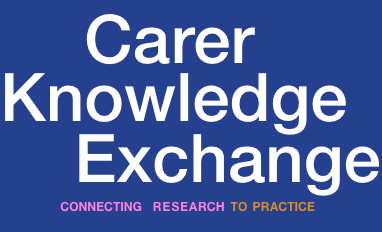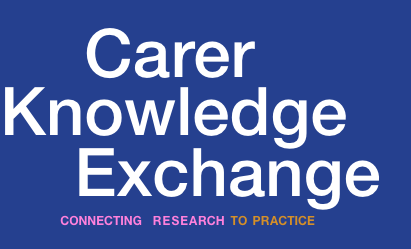Research Library
The Carer Knowledge Exchange Research Library is a collection of recent Australian publications and other resources that contain reliable research about family and friend carers. It is constantly being added to, and you can suggest research to be included here.
There are two main ways to use the Research Library. The first is to search using the fields below. The second is to browse by category lower down the page.
For help using the Research Library, click here.
Please also see our Frequently asked questions page.
The publications in this research library may contain references to sensitive issues and cause distress. If you or someone you are with is in immediate danger, please call 000. If you feel upset or are in distress, you can contact Lifeline, 24 hours a day, 7 days a week by phoning 13 11 14 or texting 0477 13 11 14. For other information on support for carers please visit our support for carers page.
-
Add your research
Is something important missing from the Research Library? Share your research or suggest research by another author using our submission form. For more information about how to create an account click here and for more information about how to upload a publication to the research library click here.
My Research
Your Results
Filter my Results
Use the ‘filter my results’ function to further refine your search results. If you would like to start a new search, please use the ‘search for a resource’ function above
Your search has returned 102 results
-
27.2.2014
The recovery framework as a way of understanding families' responses to mental illness
Robert Bland
Personal recovery is a mental health principle which suggests that individuals own and are responsible for their own recovery. In this framework, the role of the family is more in recovery-oriented support.
-
19.7.2021
Relational recovery for mental health carers and family
Robert Bland, Jastine Barratt, Rowena Jonas
This study aimed to explore the relevance of a family-based recovery framework developed by the authors that uses the CHIME (Connectedness, Hope, Identity, Meaning and Purpose, and Empowerment) tenants of recovery from the perspectives of the consumer, the family role of providing recovery-oriented support and own recovery.
-
8.7.2024
Setting priorities for mental health family carer research and advocacy in Australia
This article reports on the recent priority agenda for mental health family carer research and advocacy developed by a new Australia-based network of stakeholders and researchers with lived and living experience of supporting someone experiencing mental distress.
-
11.7.2024
The Real Face of Men’s Health
Movember Institute of men's health
The Real Face of Men's Health report illustrates the critical need for policy and practice changes in men’s health, emphasising the broader societal benefits, including substantial cost savings and improved wellbeing for families and communities.
-
28.5.2024
Strategies adopted by informal carers to enhance participation in daily activities for persons with dementia
Gemma Burridge, Rosalind Bye, Carmen Amato, David Basic, Danielle Ni Chróinín, Susanna Hill, Kaitlin Howe, Karen P.Y.Liu
This qualitative study aimed to explore the strategies carers use to assist individuals with dementia in completing daily activities.
-
1.7.2021
Understanding our workforce
Australian Public Service Commission
This study shows that four in ten employees in Australia reported having caring responsibilities, most commonly for children between the ages of 5 and 16, however 24% care for a parent and 7% for a partner. There are minimal differences in the proportions of carers and non-carers across each state.
-
10.8.2020
Post-traumatic growth: Health professionals as mothers of adult children with schizophrenia
Debra Klages, Leah East, Kim Usher, Debra Jackson
This paper describes how mothers as carers of adult children with schizophrenia experienced a complex traumatic process influenced by gender and the dominant ruling relations in healthcare. health professionals can play a central role in supporting mothers/carers in the care of their adult children with schizophrenia.



